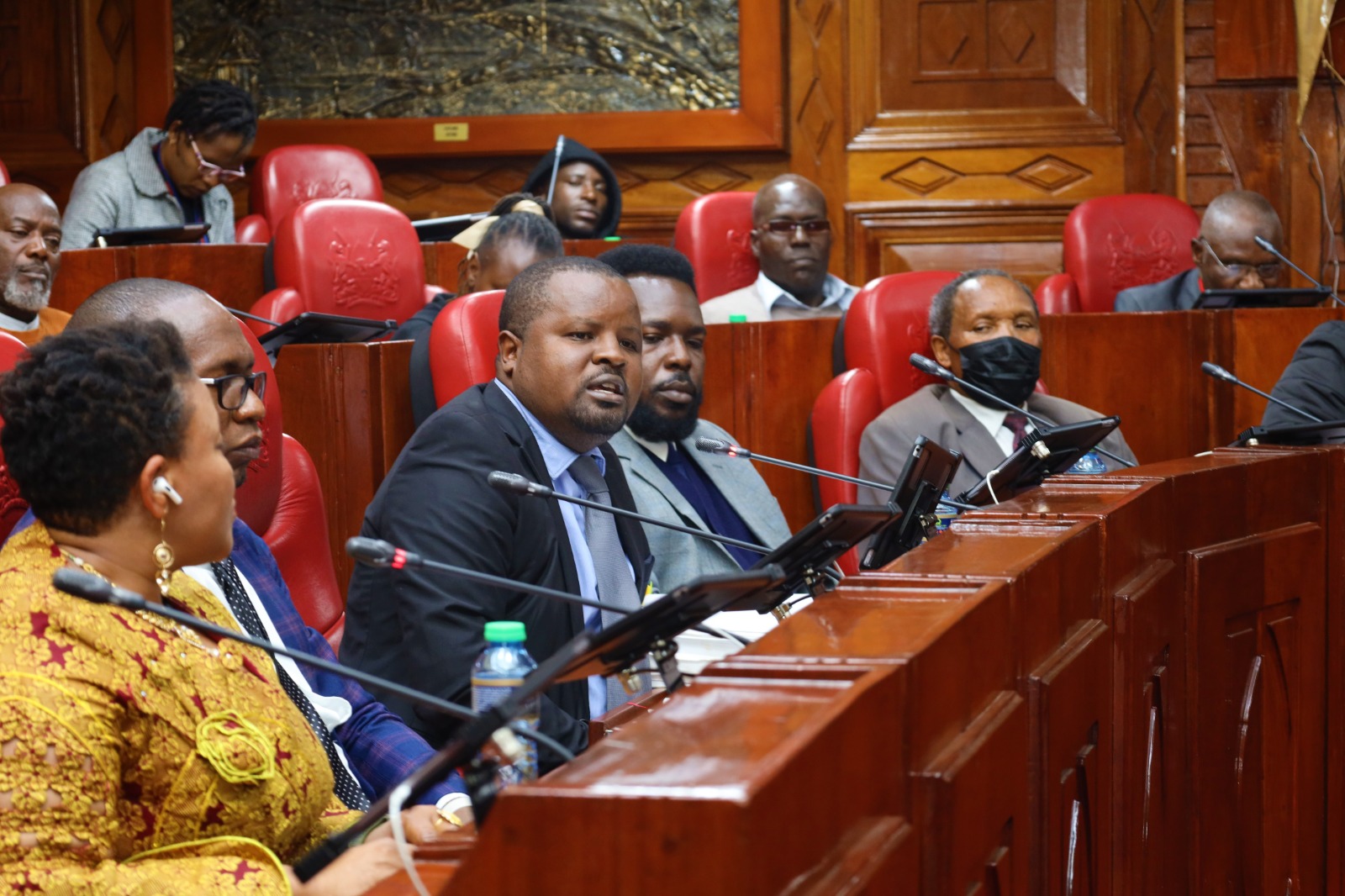“𝐓𝐇𝐄 𝐔𝐒𝐀 𝐄𝐌𝐁𝐀𝐒𝐒𝐘 𝐁𝐎𝐌𝐁𝐈𝐍𝐆 𝐑𝐔𝐈𝐍𝐄𝐃 𝐎𝐔𝐑 𝐋𝐈𝐕𝐄𝐒,” 𝐕𝐈𝐂𝐓𝐈𝐌𝐒 𝐎𝐅 𝐓𝐇𝐄 𝐓𝐄𝐑𝐑𝐎𝐑𝐈𝐒𝐓 𝐀𝐓𝐓𝐀𝐂𝐊 𝐓𝐄𝐋𝐋 𝐒𝐄𝐍𝐀𝐓𝐄 𝐀𝐃 𝐇𝐎𝐂 𝐂𝐎𝐌𝐌𝐈𝐓𝐓𝐄𝐄
The victims of the US Embassy terrorist attack in Nairobi have today informed a Senate Ad Hoc Committee that they have endured over 25 years of pain and sorrow after the United States Government failed to compensate them.
The terror attack, which claimed the lives of 213 Kenyans and injured over 5000 people, happened on 07th August 1998 when Al Qaeda detonated two suicide trucks in the Kenyan Capital bombing the US Embassy and the adjacent buildings.
While appearing before the Senate Ad Hoc Committee on the Compensation of the Victims that is chaired by Senator Agnes Kavindu, the victims vividly narrated to the Members of the Committee the health complications they are suffering from emanating from the bomb blast and pleaded with the Senators to help them get some form of reprieve.
“I was in a traffic snarl-up at Haile Sellassie Avenue and that’s when a huge blast went. Since that day, I have never witnessed the light of a day again. I became blind,” Mr Douglas Sidialo said.
“I have got a lot of medical problems from the bomb blast. As you can see, I have cuts all over my body and one of my testicles is crushed. Since that day, I have been in and out of the hospital,” Mr George Ngige added amidst tears.
On their part, Kituo cha Sheria led by Lawyer John Mwariri, who is representing the victims, informed the Committee that the US Government has extended the reach of the compensation to non-US citizen victims through the Foreign Sovereign Immunity Act (FSIA) but the Kenyan victims aren’t included in the Act.
“The victims have moved from one office to another and have never accessed any remedy. This is unlike the American, Iran or Sudan citizens who were compensated. We view that as discrimination because these events took place in one transaction,” Mr Mwariri said.
The Members of the Committee acknowledged that the compensation of the victims is long overdue and pledged to ensure they’re compensated.
















